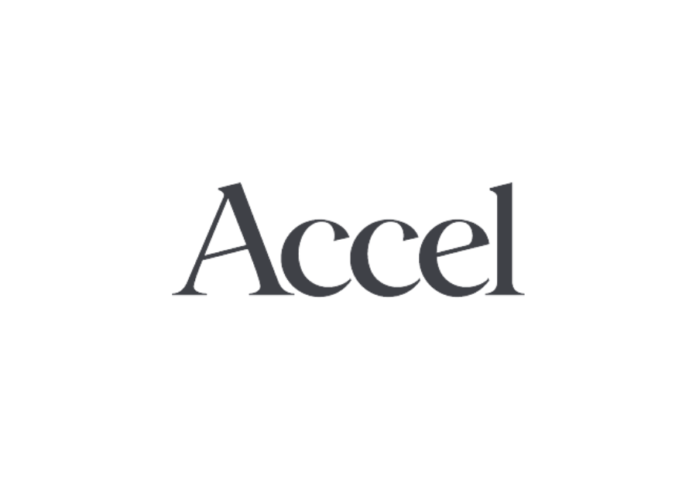According to Accel’s annual Euroscape study, the share prices of major technology companies such as Apple, Microsoft, Alphabet, Amazon, and Nvidia increased by 36% on average year over year.
According to recent research from venture capital firm Accel, US tech giants added $2.4 trillion to their market capitalizations in a year marked by the excitement surrounding generative artificial intelligence.
For the first time, Nvidia entered the trillion-dollar club, with the American chipmaker now valued at more than $1 trillion. Many complex generative AI models that generate new material from massive amounts of training data are powered by Nvidia’s high-performance CPUs.
Accel’s Euroscape index, which includes major cloud and software-as-a-service (SaaS) stocks including Salesforce, Palantir, and Unity, increased 29% year to date.
Last year, the future for cloud computing and SaaS was bleak. According to Accel, companies’ values were reduced by $1.6 trillion as investors exited high-growth tech businesses. There are hints that the pressure is diminishing.
Speedier recovery than after the dotcom collapse.
According to Accel, the tech-heavy Nasdaq Composite returned to 80% of its all-time high in 18 months, a speedier recovery than the dotcom implosion in the 1990s. According to Accel, it took the Nasdaq 14 years to reach that milestone.
Euroscape public multiples have likewise returned to a 10-year pre-Covid average of 6.1 times sales in the next twelve months. Funding for cloud and SaaS firms has also returned to pre-Covid levels in Europe, Israel, and the United States.
“We are in a very different time than we were in 2000,” Botteri stated.
“If you look back to 2000, it took a long time… for the Nasdaq to regain 80% of its peak. And it only took 18 months to get there following the 2021 reset.”
According to Accel, AI will be the major technology driving cloud and SaaS success in 2023, and it’s easy to see why. The internet has been buzzing over generative AI tools such as OpenAI’s ChatGPT, Google’s Bard, and Anthropic’s Claude.
“Generative AI is something that is really redefining software,” Philippe Botteri, partner at Accel, stated on a call on Friday.
“Any software company, whether it’s a startup, a new company, or an old company, is leveraging generative AI… You should consider this something that is prevalent.”
The United States led the way in generative AI investment agreements, with companies like OpenAI and Anthropic acquiring billions of dollars. OpenAI raised the most money, $10 billion, followed by Inflection, which raised $1.3 billion.
Hugging Face ($235 million), Poolside ($126 million), and Mistral AI ($113 million) were the three largest generative AI business rounds in Europe.
The number of unicorn companies has returned to pre-Covid levels, with AI accounting for a substantially larger percentage of new billion-dollar businesses. In Europe and Israel, 40% of new unicorns were in generative AI, whereas 80% were in the United States.
Profitability is being prioritized.
This year has been difficult for technology, with fundraising and stocks plummeting as investors become skeptical of the sector.
Tech firms typically prioritize growth and expansion over short-term earnings. However, as interest rates rise and the cost of capital rises, investors are transferring money away from high-growth ventures.
As a result, Euroscape company growth rates declined from an average of 68% in the first quarter of 2021 to 23% in the second quarter of 2023.
During the same time period, free cash flow increased from -9% to +5% on average.
This year, deal-making by IT titans came to a halt as regulators tightened down on such corporations due to fears that they had grown too huge.
According to Accel, there were only ten transactions involving a big tech business this year. This is a significant decrease from previous years. Acquisitions spearheaded by FAANG (Facebook, Amazon, Apple, Netflix, and Google) reached 27 in 2021 and 26 in 2022. Microsoft’s shocking proposal to acquire Activision Blizzard, the giant video game company behind big games such as “Call of Duty,” “Candy Crush,” and “Crash Bandicoot,” attracted significant regulatory scrutiny.
After British officials provided their approval, the two businesses eventually closed the acquisition last week. But only after a protracted battle between the two sides.
Also read: A Journey of Tech Leadership: Empowering Transparency in the Salon Industry with SalonTym
Do Follow: CIO News LinkedIn Account | CIO News Facebook | CIO News Youtube | CIO News Twitter
About us:
CIO News, a proprietary of Mercadeo, produces award-winning content and resources for IT leaders across any industry through print articles and recorded video interviews on topics in the technology sector such as Digital Transformation, Artificial Intelligence (AI), Machine Learning (ML), Cloud, Robotics, Cyber-security, Data, Analytics, SOC, SASE, among other technology topics.






